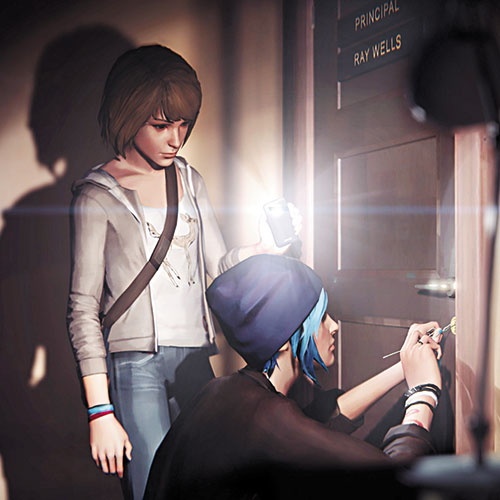‘Life is Strange’ is a hidden gem

Life is Strange is, well, a pretty strange game.
On the surface, it seems to be following in the footsteps of Telltale Games’ tried-and-true “your decisions affect what happens” adventure formula. But four episodes (of five) in, and Life is Strange has made it clear it is interested in different, still uncharted waters.
The story follows Max Caulfield, a high school senior who discovers, entirely by accident, that she has recently acquired the ability to rewind time. And it’s no coincidence that her gift has manifested just as she’s reunited with her childhood friend, Chloe Price — or that there’s something dark afoot in her sleepy hometown of Arcadia Bay.
Most of the chapters follow Max through daily life at Blackwell Academy as she experiments with her new powers.
Most decision-dependent games reserve that power of choice for big, life-or-death decisions, but Life is Strange puts equal emphasis on little things. Do you use your powers to help your unlucky classmate Alyssa from getting splashed with muddy water? Do you delete the voicemail message on the answering machine to keep Chloe out of trouble? Do you reject or encourage your friend Warren’s crush on you? Do you snoop through queen bee Victoria’s email? Everything you do shapes Max as a person — and the world around here — in tangible ways.
The payoff is, of course, that many of these little things add up to influence huge decisions — literally, life or death situations where Max’s past actions are taken into account. I can’t — won’t — spoil the huge conclusion of Episode 3, but trust me: Your choices matter in a massive, story-changing way.
The effect is … kind of like life. You never know what’s going to be the one thing that someone else remembers, or the one straw that breaks the camel’s back. Life is pretty strange that way.











